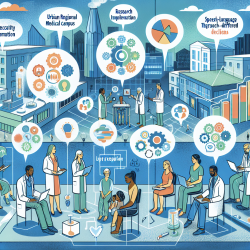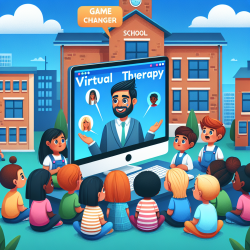The intersection of nutrition and medicine has never been more critical, especially as diet-sensitive diseases continue to impact global health. The recent research article "Culinary Medicine eConsults Pair Nutrition and Medicine: A Feasibility Pilot" highlights an innovative approach to integrating nutrition into clinical practice through electronic consultations (eConsults). This blog explores how practitioners can leverage these insights to improve their skills and patient outcomes.
The Need for Culinary Medicine in Clinical Practice
Diet-sensitive diseases demand innovative solutions that blend nutrition education with medical practice. Culinary Medicine offers a practical approach by combining dietary guidance with clinical care. This model is gaining traction in medical schools and among healthcare professionals, emphasizing the importance of nutrition in disease prevention and management.
The Role of eConsults in Enhancing Access to Nutrition Expertise
eConsults are asynchronous, provider-to-provider communications within a shared electronic health record (EHR) or web-based platform. They offer a way to improve access to subspecialty care, including nutrition expertise. The pilot study on Culinary Medicine eConsults demonstrated the feasibility of this model, showing high patient satisfaction and time savings for clinicians.
Implementing Culinary Medicine eConsults
The implementation of Culinary Medicine eConsults involves a physician–dietitian team who develops a response algorithm tailored to each patient's needs. This includes:
- Patient context, health background, and goals
- A narrative summary with educational references for clinicians
- Key dietary recommendations
- Culinary strategies and recipe suggestions
- Local resources for food access
This structured approach ensures that patients receive personalized dietary guidance that is both practical and evidence-based.
Benefits of Culinary Medicine eConsults
The pilot study revealed several benefits of implementing Culinary Medicine eConsults:
- Time Efficiency: Clinicians reported saving time during patient encounters by utilizing eConsults for expert nutrition advice.
- High Reimbursement Rates: The study achieved a 76% insurance reimbursement rate for eConsults, demonstrating financial viability.
- Patient Satisfaction: Patients expressed high satisfaction with the expert nutritional guidance received through eConsults.
- Interprofessional Collaboration: The model fosters collaboration between physicians and dietitians, enhancing the quality of care.
Encouraging Further Research and Implementation
The success of the pilot study suggests that Culinary Medicine eConsults could be expanded to other clinical settings. Practitioners are encouraged to explore further research opportunities to refine and scale this model. By doing so, they can contribute to a broader integration of nutrition into healthcare systems, ultimately improving patient outcomes.
Future Directions for Culinary Medicine eConsults
The future of Culinary Medicine eConsults lies in their potential to serve as a gateway to additional nutritional services. They can introduce patients to registered dietitians and highlight the benefits of comprehensive nutritional care. As more institutions adopt this model, it will be crucial to address scalability challenges and ensure consistent reimbursement across professions.
Conclusion
Culinary Medicine eConsults represent a promising innovation in healthcare, bridging the gap between nutrition and medicine. By implementing this model, practitioners can enhance their skills, improve patient care, and contribute to the growing field of culinary medicine. As we continue to face the challenges posed by diet-sensitive diseases, embracing interprofessional collaboration and innovative care models will be essential.
To read the original research paper, please follow this link: Culinary Medicine eConsults Pair Nutrition and Medicine: A Feasibility Pilot.










